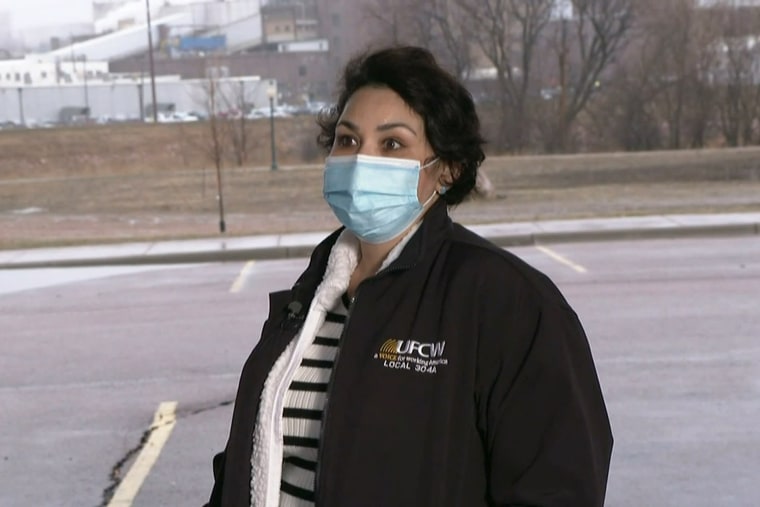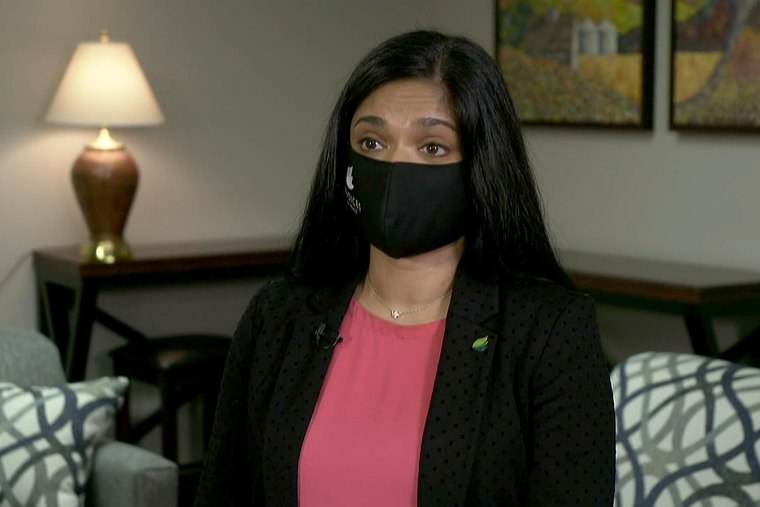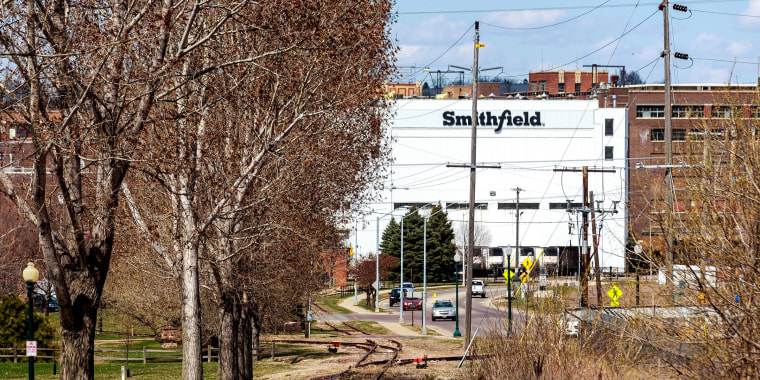SIOUX FALLS, S.D. — A year after meatpacking worker Sandra Silbert found herself praying in the locker room before her shifts and making her own masks to protect against COVID-19 on the assembly line, the timeline for vaccines to protect essential workers is still hazy.
"They don’t care [about] us. They don’t care in the beginning of the pandemic, and they don't care now,” said Silbert, who has worked in the hambone department at the Sioux Falls Smithfield plant for 15 years. "If we were a priority, they would give us the vaccine. But when people treat us like that, we feel alone.”
Companies like Smithfield were slow to enact safety guidelines at the beginning of the pandemic, leading to the first major outbreaks at locations across the country. The company said, “There is an awareness that food and agricultural workers are a high priority for the vaccine.”
Keira Lombardo, Smithfield’s chief administrative officer, added, “Priorities have shifted in the past two months in a range of states, and that has lowered the priority status of our critical and essential employees.”
The Centers for Disease Control and Prevention recommends that food processing workers get vaccine priority — even before people older than 65 or younger people with underlying health conditions — but most states didn't lay out their vaccination phases that way. Only 12 states include food processing workers in vaccination access, while large meatpacking producing states like South Dakota, Texas, Minnesota and Georgia don't.

South Dakota ranks food processing workers in Phase 1E, after populations like teachers and funeral service workers get vaccinated.
Asked for comment about why the phases were broken down the way they were, Daniel Bucheli, communications director for the state Health Department, wrote: "We look forward to vaccinating essential food service workers. ... Given South Dakota's record progress on vaccination efforts, provided an increase in vaccine allocation from the Federal Government, such should start in the near future."
The United Food and Commercial Workers, or UFCW, the union that represents the top 10 food processing companies nationally, has been pushing for companies and states to prioritize such workers.
“Simply put, the failures in early vaccine distribution under the past administration have left millions of Americans and essential workers defenseless,” the UFCW wrote in a statement this month. “Governors must immediately work with CEOs in these industries to ensure the vaccine is free for all essential workers and that workers have paid time off to receive each dose.”
Other advocacy groups point out that it's immigrant workers who are doing the work as they risk their health.
“It's very frustrating to see that when the first outbreak happened, it was at a meat processing plant, because there were no safety measures that were taking place in March, and the people working in that industry in our state that keeps our state going are immigrants and refugees,” said immigration lawyer Taneeza Islam, executive director of South Dakota Voices for Peace. “It’s troublesome — whether it's a misunderstanding or whether it's actual bigotry.”

South Dakota Voices for Peace has been working to translate communication materials about the vaccines into Spanish, as South Dakota is an English-only state, and most vaccination information and education is published only in English, even though English isn't most workers’ first language.
Some locations, like JBS in Greeley, Colorado, and Tyson Foods in Iowa and Arkansas, have held mass vaccination days for workers. In Colorado, the 3,000 workers who were vaccinated were paid to take the day off after a push from the union to get the state and the National Guard to allocate doses.
“We need systemic change,” said Kim Cordova, president of UFCW Local Union 7 in Colorado. “These are things our elected officials can help workers get. This [cooperation] has been absolutely critical, and I encourage all of the states to work in partnership.”
In South Dakota, Silbert said that even now, she doesn’t feel safe going into work, because social distancing isn’t possible and hand-washing stations often aren’t available. She is also working to push the importance of the vaccines to her co-workers.
Silbert said she continues to work in unsafe conditions “because we need to feed our families, we have a family at home, we have our kids we have to feed."
"And we have to stand up for the country — the country that [gave] everything to us, that opened the door for us," she said. "There’s only one way to give back to the country — stand up.”


